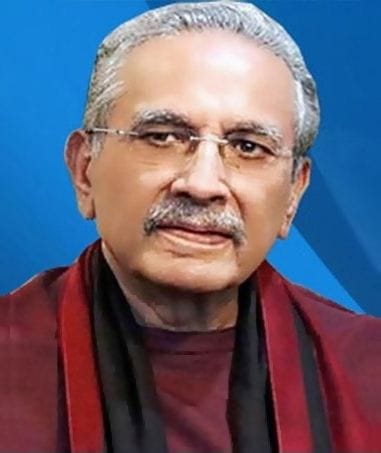Tariq Khattak
Islamabad, June 12, 2025
Dr. Shahid Rasheed Butt, a respected business leader and former president of the Islamabad Chamber of Commerce and Industry (ICCI), said on Thursday that the newly presented federal budget reflects the harsh economic realities and geostrategic constraints facing Pakistan. While acknowledging the government’s efforts to align fiscal priorities with national needs, he expressed disappointment over the limited relief provided to the general public and salaried class, who continue to bear the brunt of inflation and stagnating wages.
In a detailed statement issued to the press, Dr. Butt remarked that the government had to operate within extremely tight parameters, shaped by mounting economic pressures, binding conditions of the International Monetary Fund, rising global uncertainties, and persistent Indian hostilities. In such a scenario, he stated, the budget rightly prioritizes defense, financial consolidation, and strategic resilience.
He particularly defended the 21 percent increase in the defense budget, terming it a necessary step given the growing security concerns. According to him, the regional environment has worsened due to the resurgence of terrorism, India’s aggressive posturing especially on water issues, and the emergence of hybrid and non-traditional threats. He said that enhancing defense spending was not a choice but a necessity for preserving Pakistan’s sovereignty and ensuring the country’s long-term survival.
However, Dr. Butt was critical of the ambitious revenue target of Rs 14.13 trillion, an 18.7 percent increase over the previous year, even though the Federal Board of Revenue is likely to fall short of the current fiscal target by over Rs 1 trillion. He lamented that despite repeated assurances about broadening the tax base, industries operating in tribal areas remain largely outside the formal tax net. This, he said, reflects a lack of administrative will and undermines fair tax distribution.
Dr. Butt voiced strong concerns about the controversial tax imposed on solar energy solutions. He emphasized that this measure would discourage investment in clean energy, increase costs for households and small businesses, and contradict Pakistan’s climate commitments. He urged the government to immediately review this decision in consultation with stakeholders and devise an energy policy that encourages renewable sources rather than penalizing them.
While he appreciated the budget’s attempt to support the revival of industrial and construction activities, he was critical of the significant cut in the higher education budget. Reducing it from Rs 65 billion to Rs 39.5 billion, he said, amounts to undermining the country’s future workforce and innovation potential. Similarly, he termed the allocation of Rs 2.38 billion for climate change mitigation as wholly inadequate for a country facing severe environmental threats.
Dr. Shahid Butt stressed that the presentation of the budget is only the first step in a much longer journey. For fiscal measures to be effectively implemented, he said, the country requires more than technical decisions, it needs political stability, policy continuity, and above all, a broad national consensus. He appealed to all political parties to abandon the tradition of criticism for its own sake and instead engage in constructive dialogue aimed at improving the budget where necessary.
He said that only through national unity, responsible leadership, and mutual cooperation can Pakistan hope to navigate the current crisis, achieve economic independence, and ensure durable development.
Shahid Rasheed Butt also stressed the need for continuous monitoring of budget implementation, sector-wise audits, and public accountability to ensure that allocations are effectively translated into results. Dr. Butt underscored that the success of any fiscal document lies not in its announcement but in its execution with integrity, discipline, and transparency. Only then, he emphasized, can public trust be regained and a foundation for long-term stability be established.

